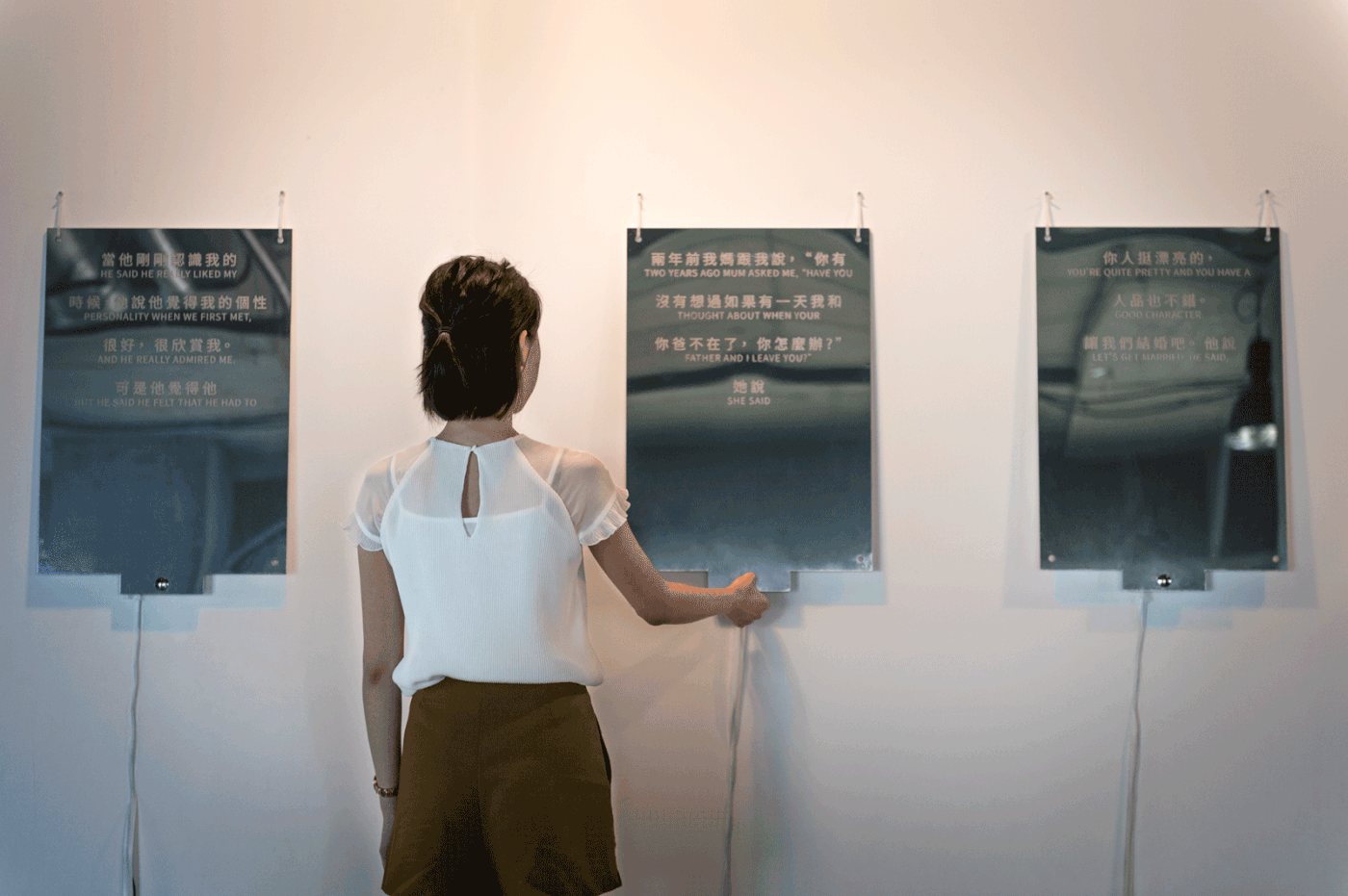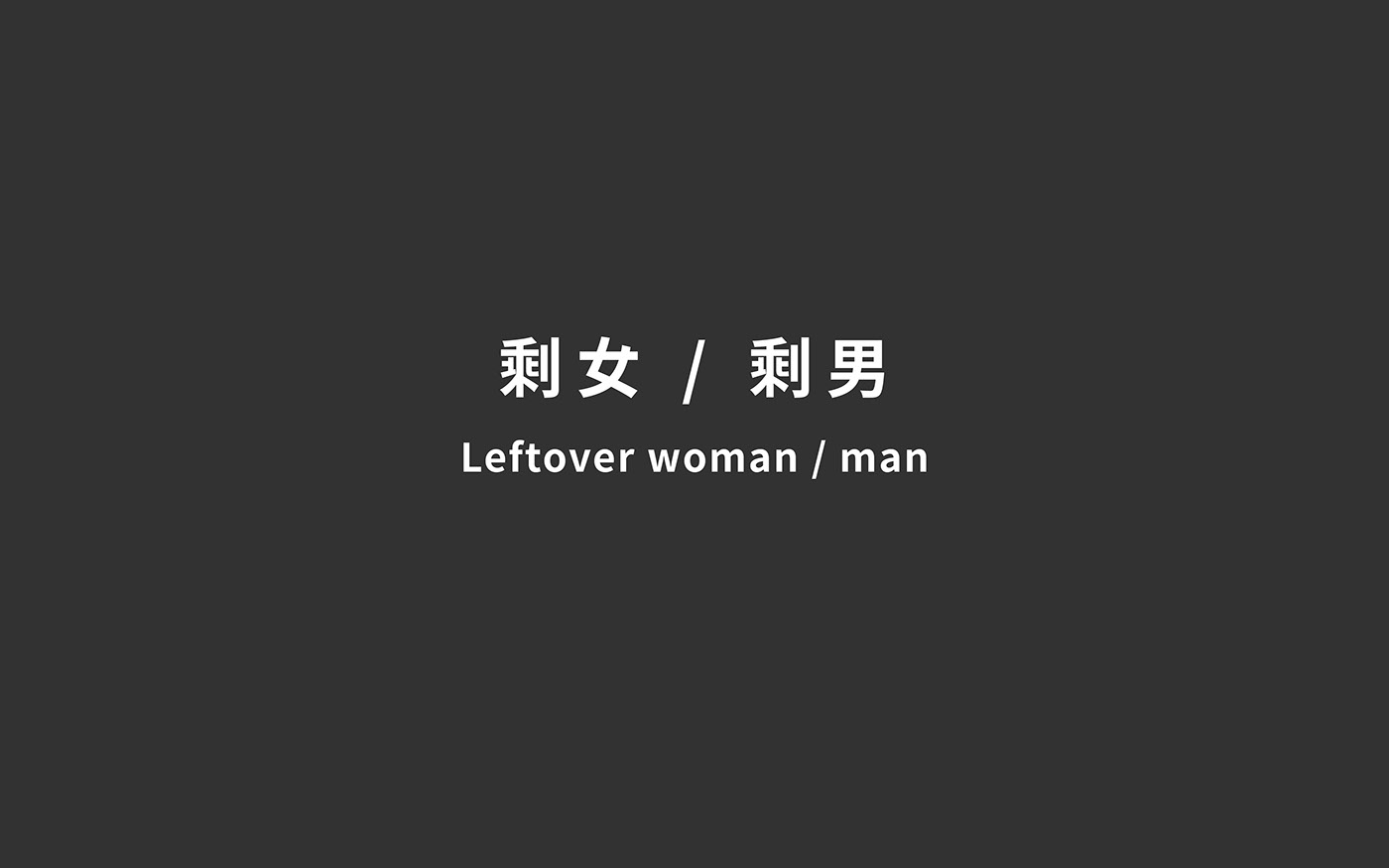
Are you over the age of 27 and unmarried?
If you are, in China you would be classified as a ‘Leftover man’ or a ‘Leftover woman’. Due to the implementation of China’s One-Child Policy, there is a gender imbalance caused by the inherent favouritism of male offsprings. As a result, the surplus of individuals who are unable to find a significant other face intense marital pressures from family and friends in order to avoid the stigma of being labelled as a ‘Leftover’. Consequently, physical matchmaking markets have become increasingly prevalent within Chinese communities to alleviate this concern of ‘Leftovers’ within China.
Leftovers is a project that seeks to embody the emotional struggles, stigmas and cultural expectations experienced by these ‘Leftovers’ whilst emulating the experience of browsing through the ‘Leftover profiles’ at a Chinese marriage market. By shedding light on these ‘Leftover’ experiences, it elicits a degree of empathy for these individuals and highlights the need to subvert the stigmas associated with being over 27 and unmarried.
This project is a call to facilitate the subversion of the ‘Leftover phenomenon’.

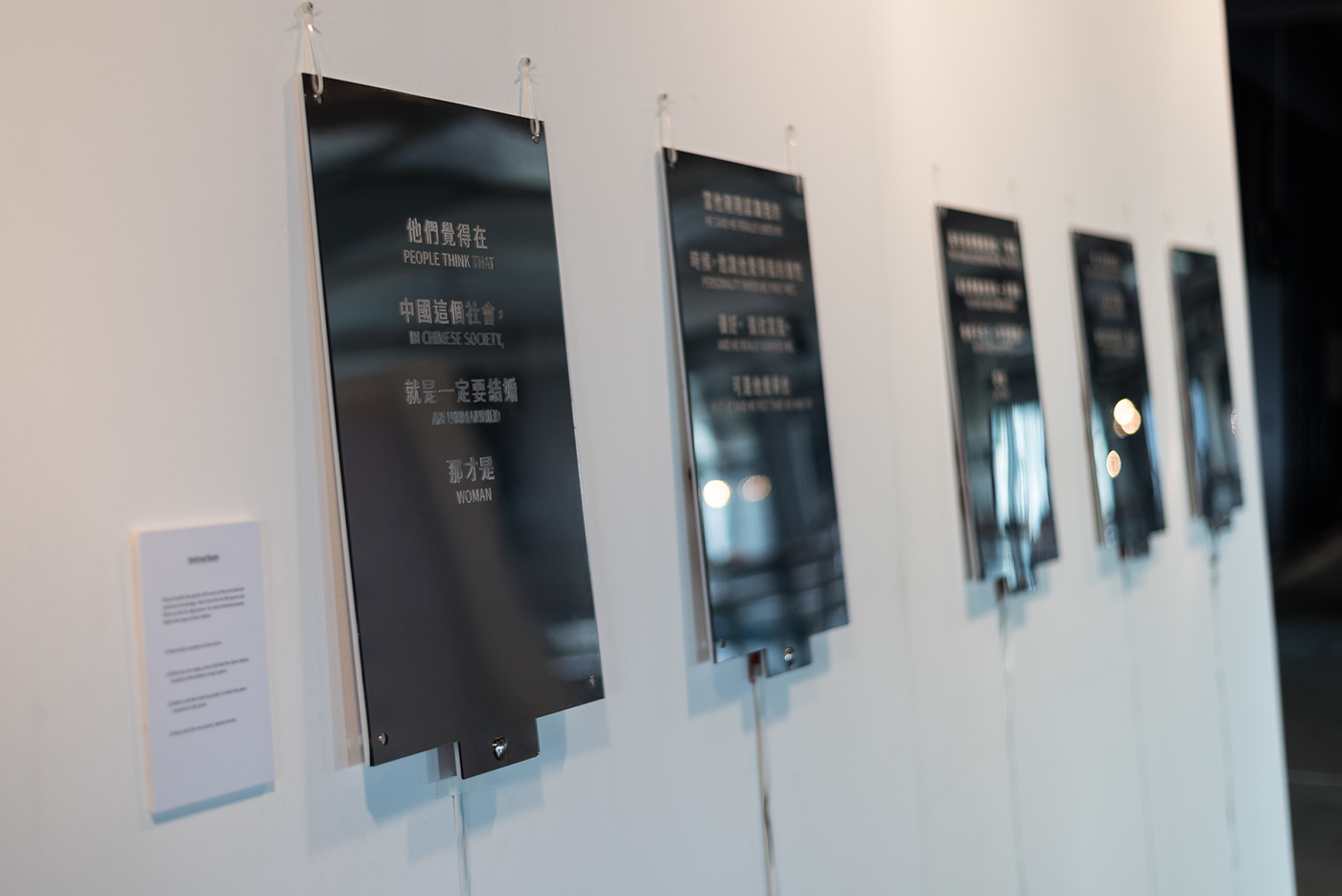
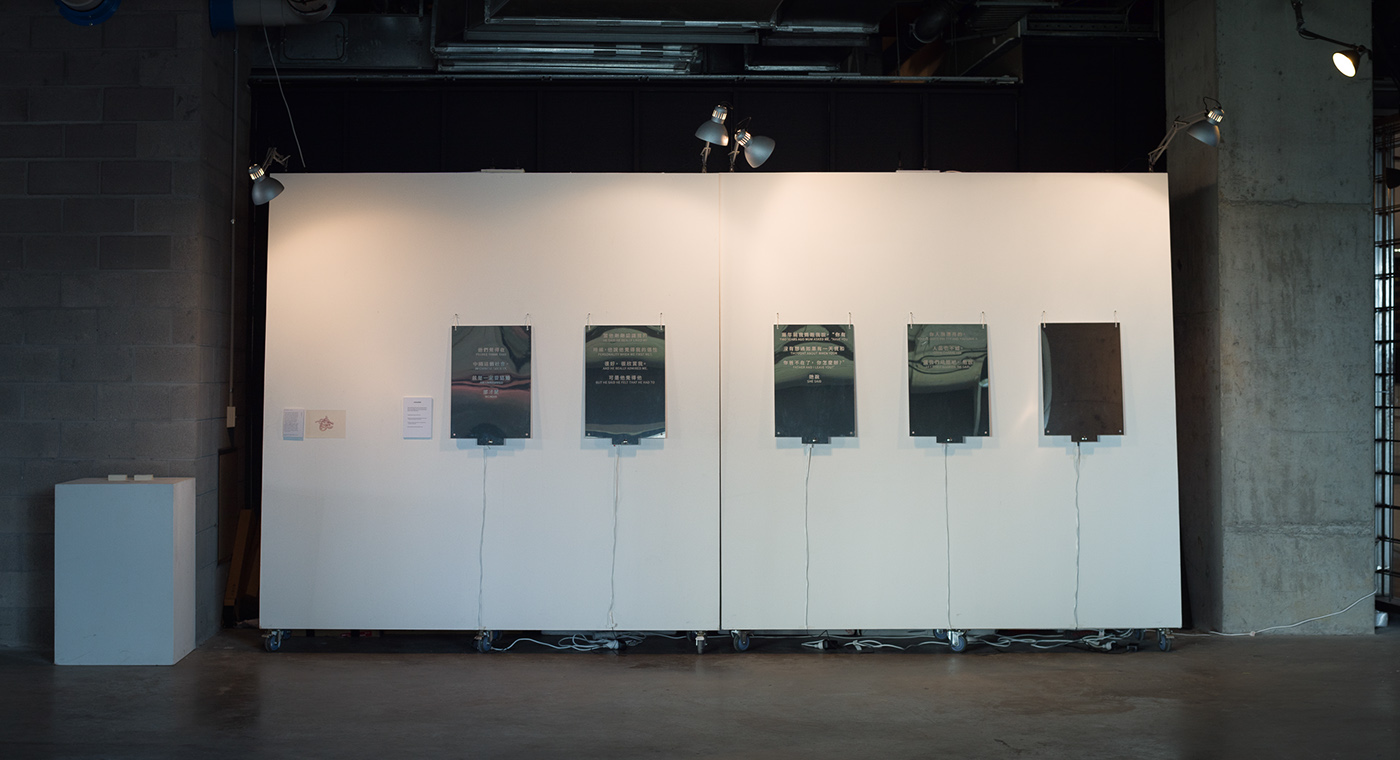


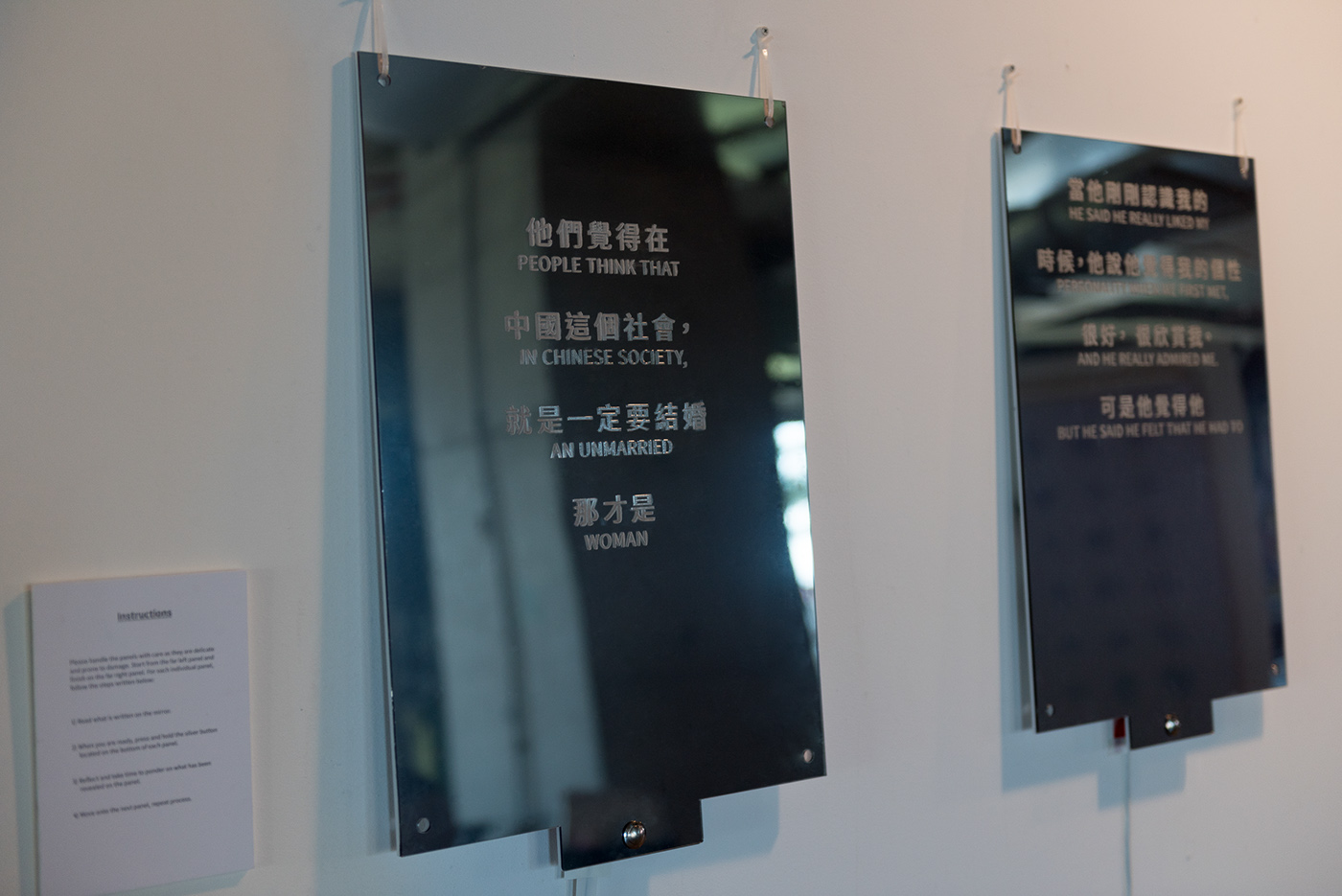
Panel 1 | People think that in Chinese society an unmarried woman...

Panel 2 | "He said he really liked my personality we we first met, and he really admired me. But he said he felt that he had to..."

Panel 3 | Two years ago my mum asked me, "have you thought about when your father and I leave you?", she said...

Panel 4 | You're quite pretty and you have a good character. Let's get married. He said,...

Panel 5 | (the empty mirror panel that reveals the most confronting yet most positive quote in regards to the 'Leftover phenomenon',


When the person presses the switch located at the bottom of each panel, it will reveal the other half of the quote as illustrated above.

Panel 3

Panel 4

Panel 5 | The reveal

Panel 1
Panel 2
Panel 3
Panel 4
Panel 5
